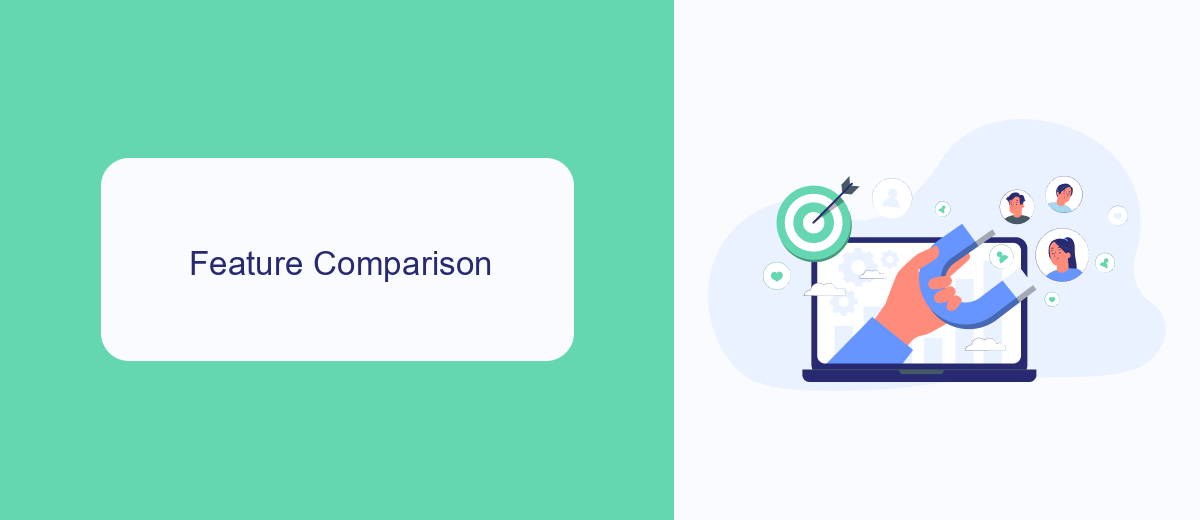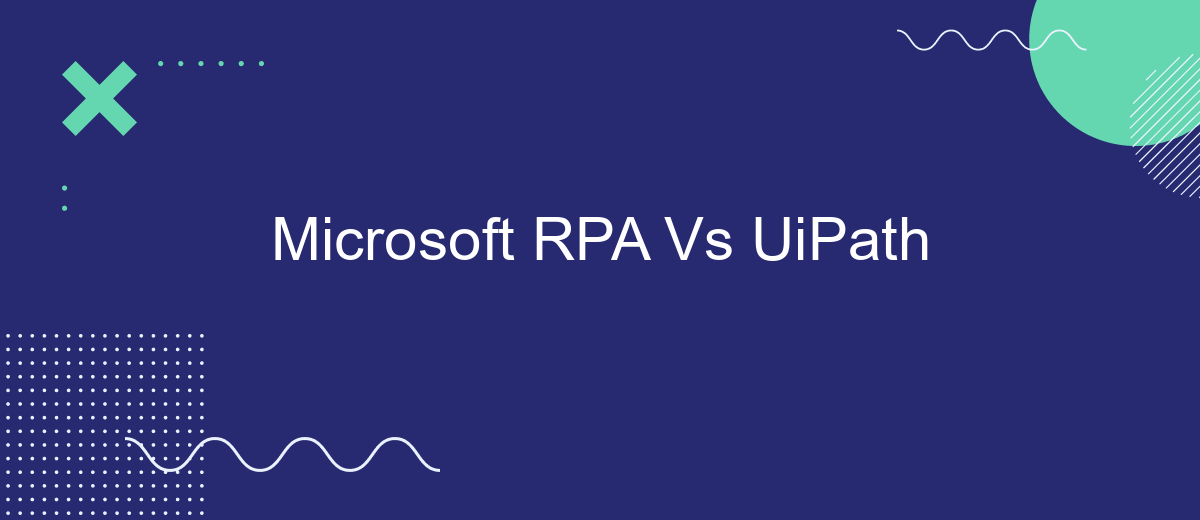In today's fast-paced digital landscape, businesses are increasingly turning to Robotic Process Automation (RPA) to streamline operations and boost efficiency. Two leading contenders in the RPA market are Microsoft Power Automate and UiPath. This article delves into a detailed comparison of these platforms, examining their features, capabilities, and overall performance to help you make an informed decision for your automation needs.
Introduction
As businesses increasingly seek to automate repetitive tasks and streamline workflows, Robotic Process Automation (RPA) tools have become essential. Two of the leading players in this field are Microsoft and UiPath, each offering robust solutions to enhance operational efficiency. This article delves into the key differences and similarities between Microsoft RPA and UiPath, helping you make an informed decision for your automation needs.
- Microsoft RPA: Integrated within the Microsoft Power Platform, offering seamless integration with other Microsoft services.
- UiPath: A standalone RPA solution known for its extensive capabilities and user-friendly interface.
- SaveMyLeads: A service that can facilitate integration between various platforms and CRMs, enhancing both Microsoft RPA and UiPath implementations.
Both Microsoft RPA and UiPath have their unique strengths and features, making them suitable for different organizational needs. While Microsoft RPA excels in environments already utilizing Microsoft products, UiPath offers a more versatile and comprehensive automation suite. Understanding these differences will help you choose the right tool to optimize your business processes.
Feature Comparison

When comparing Microsoft RPA and UiPath, one of the key differences lies in their integration capabilities. Microsoft RPA, part of the Power Automate suite, offers seamless integration with other Microsoft products like Office 365, Dynamics 365, and Azure. This makes it an excellent choice for organizations already invested in the Microsoft ecosystem. On the other hand, UiPath provides extensive integration options with a wide range of third-party applications and services, making it a versatile tool for diverse business environments. Both platforms support API-based integrations, but UiPath's marketplace offers a broader array of pre-built connectors and templates.
Another significant difference is in the user experience and ease of use. Microsoft RPA leverages a familiar interface for users accustomed to Microsoft products, which can reduce the learning curve. UiPath, however, is known for its user-friendly design and robust community support, which can be beneficial for new users. Additionally, tools like SaveMyLeads can enhance the integration process for both platforms by automating the transfer of leads and customer data between applications, further streamlining business workflows.
Pricing and Licensing

When comparing Microsoft RPA and UiPath, pricing and licensing are crucial factors to consider. Both platforms offer flexible pricing models to cater to various business needs, but they differ in structure and cost.
- Microsoft RPA: Microsoft offers a range of pricing options, including pay-as-you-go and subscription-based models. The pricing is often bundled with other Microsoft services, providing an integrated ecosystem for businesses already using Microsoft products.
- UiPath: UiPath provides a tiered pricing structure, including Community, Enterprise, and Enterprise Plus editions. The Community edition is free, making it accessible for small businesses and individual developers. The Enterprise editions offer more advanced features and support, with pricing based on the number of robots and users.
Both platforms also offer licensing flexibility, allowing businesses to scale their automation efforts as needed. For those looking to streamline integrations, services like SaveMyLeads can be invaluable, offering seamless connectivity between various applications and automation workflows. Ultimately, the choice between Microsoft RPA and UiPath will depend on your specific requirements and budget.
Customer Reviews and Case Studies

Customer reviews and case studies are essential when comparing Microsoft RPA and UiPath. Users often highlight the ease of integration, scalability, and user-friendliness as key factors in their decision-making process.
Many organizations have shared their success stories, showcasing how these platforms have streamlined their business processes. Both Microsoft RPA and UiPath have been praised for their ability to automate repetitive tasks, thus saving time and resources.
- ABC Corp reported a 30% increase in productivity using UiPath.
- XYZ Ltd. highlighted the seamless integration capabilities of Microsoft RPA with their existing systems.
- DEF Inc. benefited from using SaveMyLeads to set up integrations quickly and efficiently with both platforms.
Overall, customer feedback indicates that while both platforms have their strengths, the choice often depends on specific business needs and existing technological infrastructure. Case studies consistently show that leveraging additional services like SaveMyLeads can further enhance the automation experience, making the integration process smoother and more effective.
Conclusion
In conclusion, both Microsoft RPA and UiPath offer robust solutions for automating business processes, each with its unique strengths and capabilities. Microsoft RPA leverages its deep integration with the Microsoft ecosystem, making it an ideal choice for organizations heavily invested in Microsoft technologies. On the other hand, UiPath stands out with its user-friendly interface and extensive community support, catering to a broader range of automation needs.
When considering integration capabilities, services like SaveMyLeads can play a pivotal role in streamlining workflows by automating data transfers between different applications. This can significantly enhance the efficiency of both Microsoft RPA and UiPath implementations. Ultimately, the best choice depends on the specific requirements and existing infrastructure of the organization. By carefully evaluating these factors, businesses can select the most suitable RPA tool to drive their digital transformation initiatives.


FAQ
What are the primary differences between Microsoft RPA and UiPath?
Which platform is more suitable for small and medium-sized businesses?
How do the pricing models of Microsoft RPA and UiPath compare?
Can both Microsoft RPA and UiPath integrate with third-party applications?
Which platform offers better support and community resources?
Would you like your employees to receive real-time data on new Facebook leads, and automatically send a welcome email or SMS to users who have responded to your social media ad? All this and more can be implemented using the SaveMyLeads system. Connect the necessary services to your Facebook advertising account and automate data transfer and routine work. Let your employees focus on what really matters, rather than wasting time manually transferring data or sending out template emails.
